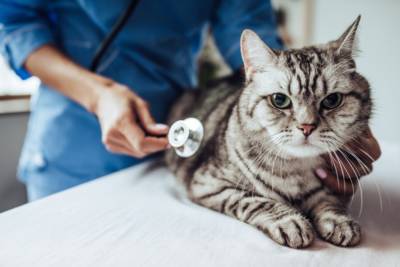
-
Changes in appetite: A sudden loss of appetite or a significant decrease in food intake can indicate an underlying health issue. Conversely, an increase in appetite accompanied by weight loss could also be a sign of a problem.
-
Litter box changes: Keep an eye on your cat's litter box habits. Straining or difficulty urinating, frequent urination, blood in urine or feces, or going outside the litter box can be signs of urinary tract infections, bladder stones, or gastrointestinal issues.
-
Unusual behavior: Cats may exhibit changes in behavior when they're not feeling well. If your typically social and affectionate cat becomes withdrawn, hides excessively, or shows aggression, it may be a sign of illness.
-
Changes in grooming habits: Cats are meticulous groomers, so any significant changes in grooming behavior should be noted. If your cat stops grooming altogether or excessively grooms a particular area, it could indicate skin irritation, parasites, or pain.
-
Respiratory issues: Coughing, sneezing, wheezing, difficulty breathing, or nasal discharge can be symptoms of respiratory infections, allergies, or even asthma in cats.
-
Digestive problems: Vomiting, diarrhea, constipation, or changes in stool consistency can indicate gastrointestinal issues, infections, or dietary sensitivities.
-
Changes in water consumption: Increased thirst or a sudden decrease in drinking water may indicate issues with your cat's kidneys, diabetes, or other underlying health problems.
-
Changes in vocalization: Pay attention to any changes in your cat's vocalization patterns. Excessive meowing, growling, or howling may indicate pain or distress.
-
Weight changes: Unexplained weight loss or weight gain should be monitored closely. Sudden weight loss can be a sign of various illnesses, including hyperthyroidism or gastrointestinal disorders, while weight gain can indicate obesity or metabolic issues.
-
Changes in coat and skin: Monitor your cat's coat and skin condition. Dull, dry, or flaky coat, excessive shedding, hair loss, redness, swelling, sores, or lesions can be signs of allergies, dermatitis, parasites, or other skin conditions.
It's important to note that these signs alone may not definitively indicate a specific illness, but they should serve as warning signals that prompt you to seek veterinary care. If you notice any of these signs persisting for more than a day or two, or if they are accompanied by severe distress, it's advisable to consult your veterinarian. Early detection and treatment of illnesses can greatly improve your cat's prognosis and overall well-being. Regular vet check-ups, maintaining a balanced diet, providing fresh water, regular grooming, and vaccinations are also important for your cat's health and well-being.
